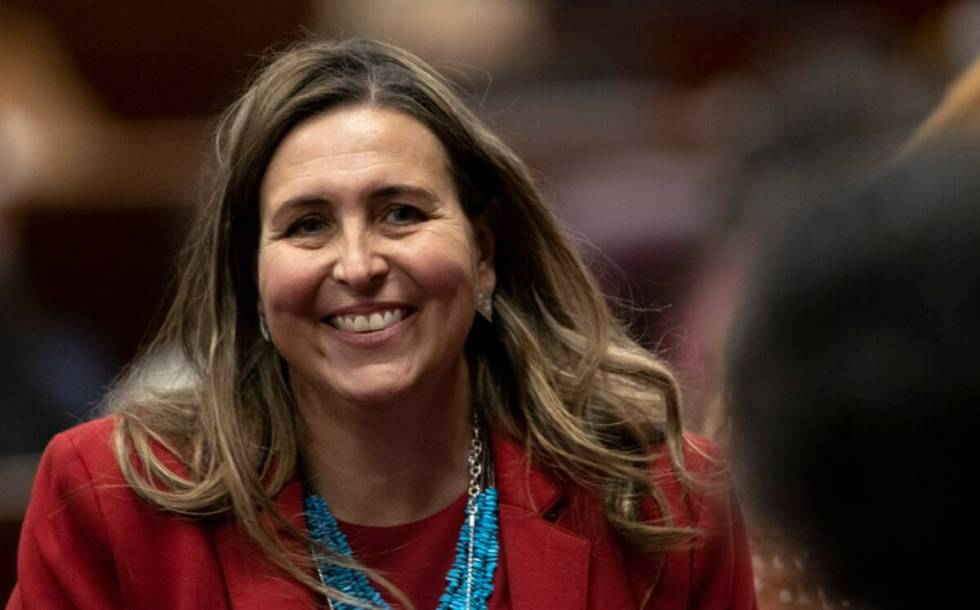Nevada bill: Coordinate Indigenous missing persons investigations

Law enforcement agencies would have to enter missing persons reports from tribal reservations or colonies into federal databases, under a bill heard in the Assembly Judiciary Committee on Monday.
Assembly Bill 125, sponsored by Assemblywoman Shea Backus, D-Las Vegas, would require law enforcement agencies to accept a report of a missing person from a tribal reservation or colony and enter that person’s information into the National Crime Information Center and the National Missing and Unidentified Persons System.
The bill also requires law enforcement agencies to undergo training on how to handle cases relating to missing Indigenous people, as their cases involve complex jurisdictional issues. It also requires the Department of Public Safety’s tribal liaison to maintain ongoing communication with tribes regarding missing and murdered Indigenous people.
“At the time a person goes missing, a crime might not have yet happened,” said Backus, who is an enrolled Cherokee tribal member. “But we know that time is of the essence and such (a) person needs to be reported as missing.”
Epidemic of violence
Native American women are disproportionately impacted by violence and they face murder rates more than 10 times the national average, according to the National Indigenous Women’s Resource Center. Many Native activists and lawmakers call the problem an “epidemic” across the country. In Nevada, there is a lack of data on the number of missing and murdered Indigenous people, Backus said.
When Indigenous people go missing in Nevada, their description is often shared on tribal communities’ local Facebook pages, Backus, D-Las Vegas, said.
“While Facebook can be effective, we need to do better than social media when indigenous persons go missing,” Backus said. “Missing indigenous persons are not a silo in Indian Country.”
Some tribes have law enforcement that are connected to the National Crime Information Center, which is a criminal index that is accessible by federal, state and local law enforcement that includes information about missing people.
But many Nevada tribes do not have access to the database and do not have their own tribal police, Backus said. Those tribes rely on the FBI or Bureau of Indian Affairs to report their missing people, which can create delays.
Jurisdictional problems also contribute to the problem, Backus said, as different crimes committed by a non-Native or by a Native result in different law enforcement agenices leading the investigation.
“The mindset of jurisdictional hurdles creates a delay in ensuring that missing persons get inputted into a national database,” Backus said.
Tribal support
During the meeting Monday, more than a dozen people — many from tribal communities — spoke in support of the legislation.
“We believe Indigenous people should have the same rights and access to justice as all Nevadans,” said Dejalyne Davis, a member of the Pyramid Lake Paiute Tribe who spoke for the Pyramid Lake High School Girls’ basketball team, which has used its season to bring awareness to the Missing and Murdered Indigenous Persons issue.
“We’re asking our state legislators to help close the loopholes to access for justice for Native people.” said Davis, who also spoke in honor of her mother, Amanda Davis, who was murdered in 2020.
Those who spoke in opposition to the bill included sheriff’s offices and associations, such as the Nevada Sheriffs’ and Chiefs’ Association, that had concerns about the technical reporting issues regarding local law enforcement compliance and tribal sovereignty. They said they are willing to work with Backus to make amendments to the legislation, however.
Contact Jessica Hill at jehill@reviewjournal.com. Follow @jess_hillyeah on Twitter.